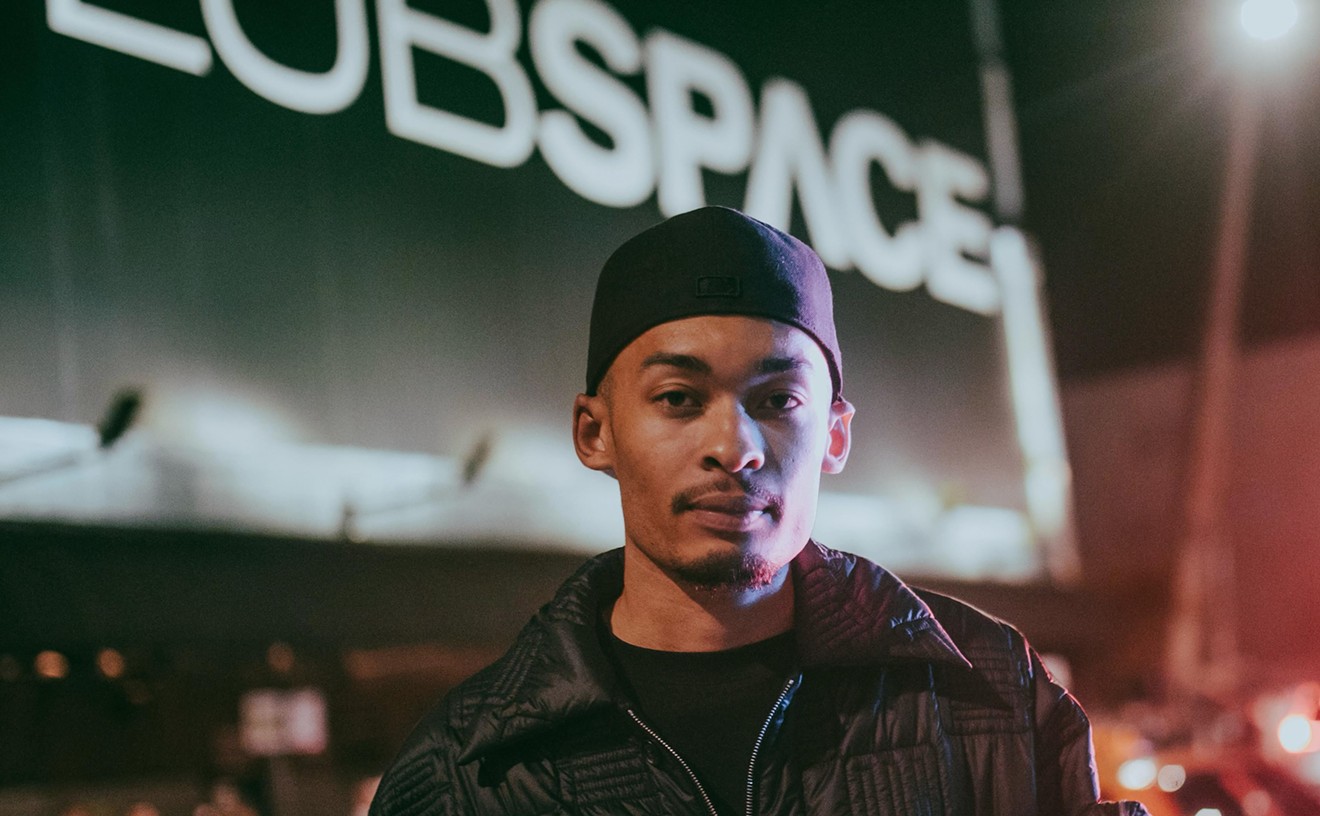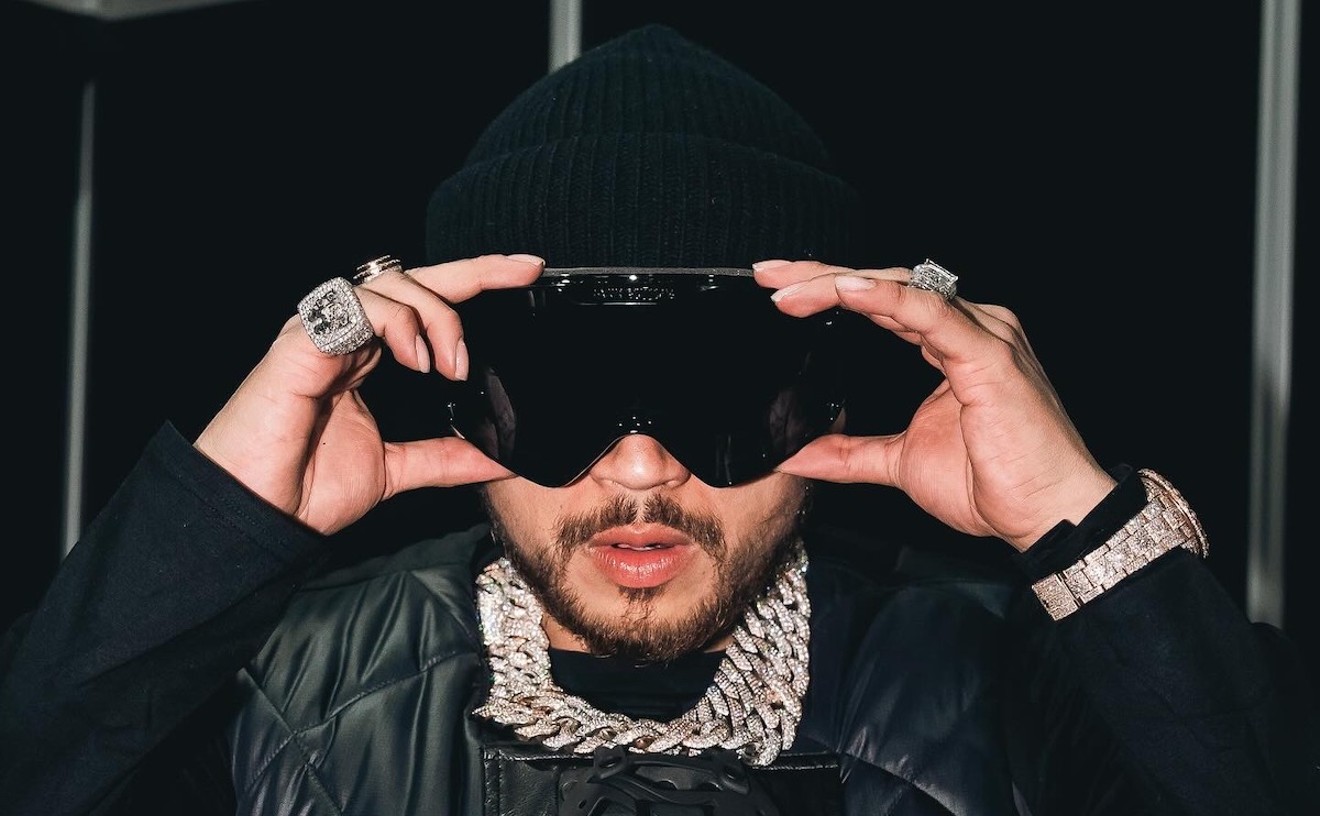Iconoclast, philosopher, auteur -- these are words that come to mind to describe Francis Harris.
Iconoclast because he came into the electronic dance music game through the back door as a former hardcore punk rocker hell-bent on defying EDM's musical conventions.
Philosopher because he was literally a university philosophy student, and would apply grandiose mind-bending concepts to his music.
And auteur because of his uncompromising artistic vision -- an ever-evolving sound which he single-handedly crafts every step of the way, from multi-instrumentalist composer to seasoned sound engineer.
Of course, international dance floors know Harris first and foremost as Adultnapper, purveyor of dark, driving club beats. Howver, 2012 saw Harris's maturation as a deeper-thinking songwriter with the critically acclaimed album Leland, released under his own name. It's as nuanced and sensitive a work of "techno" as you're likely to hear.
Crossfade caught up with the talented Mr. Harris ahead of his gig at Treehouse with LINK Miami on Friday to talk about his conversion from punk to EDM, his evolution as a producer, the album, and his new label.
Crossfade: As the story goes, you started out as a punk rocker who hated dance music. What can you tell us about those early days as a musician? And how did you get converted to electronic dance music?
Francis Harris: When I was in high school, then in college, I was a devotee to American hardcore music, particularly that which thrived in the East and Midwest. Bands like Born Against, Current, Moss Icon, and Los Crudos were a big influence to me, and the bands I played in. I even had a small seven-inch label called Ex Punk Facto.
Recently, I've been writing some new music and thought of bringing back the imprint, but maybe that's a bit more than I can chew for the moment. As far as electronic, I was not so into the early rave-y stuff, but I had a friend who was involved in throwing some parties at a bingo hall in Lansing, in the mid '90s, where I once saw Plastikman do a more ambient-type set. This really opened my eyes to the genre. I was also introduced to artists like Mouse on Mars, Oval, and Bill Laswell, so my interests began to grow.
For someone who once hated dance music, you've emerged as a highly skilled electronic producer and sound designer. How did you develop these chops in the studio?
I had some great mentors who really took the art of engineering very seriously. Erich Lee, who I did a few early records with, initially taught me how to mix. Then Alexi Delano. Both these guys have different styles of mixing, but can both be found evident in the style of mixing I do in the studio.
Beyond that, I read all the time and am constantly challenging myself to step out of the box and into new and innovative ways to engineer. It's a limitless and never-ending education that will clearly last a lifetime. If I am a devotee to anything, it is to sound and its possibilities. The meeting of form and expression happens clearly in the art of engineering. So it's of great importance to me as an artist and musician.
What exactly was the narrative concept behind the Adultnapper character and Ransom Note label when you first launched them? And how did you develop the concept audio-visually?
Adultnapper and Ransom Note were really an experiment in an act of intellectual self-loathing. I was a big follower of French post-structuralist philosophy, and like many students, I took myself way too seriously. Adultnapper and Ransom Note were a way to have a little fun with the language. Adultnapper in my mind was sort of a pseudo-intellectual anti-hero and the narrative on the records were a way of mocking the language of late 20th-century philosophy. I suppose, in retrospect, not many people got the joke and felt that it was quite "dark." But for those who know me well, there was some evident humor involved.
Your album Leland has been described as a requiem for your late father. Would you care to tell us about the creative process and how your father's passing influenced it?
It was never my intention to actually write a requiem, but I was working on an album when my father passed away, and everything changed for me, and Leland was born. It's difficult to even remember the process, as the initial writing took only a matter of weeks. Once I saw the piece from a distance, I knew that I wanted to finish it in a way that was much more organic than anything I'd done before, so I took the time to really think about how to mix it.
One aspect that I knew I wanted evident in its sound was dynamic over loudness. So I approached mixing the record as an experiment in how soft I could make it sound. At the time, I was working with Dawson Baca (Big Bully) and he introduced me to Jordan Lieb (Black Light Smoke). He was working in a studio that had a large SSL console.
I played him the record and told him that I was looking for a different kind of sound than the usual over-limited sound we so often hear in dance music today. We both knew that the SSL was a great way to accomplish a wide mix that still had a soft feel to it, and an apparent dynamic. The rest is history, I suppose.
You used plenty of live acoustic instruments like cello, guitar, and trumpet on the album. Is this the beginning of a general transition in your style from techno producer back to instrumentalist composer?
I suppose to a certain extent. But I'm not an absolutist. I still love to make club records as well. I imagine it will be a bit of both.
What prompted you to give up the Adultnapper moniker and begin working under your own name?
I've now lost both of my parents. So I felt that a time in my life was over and a new chapter was beginning.
How did your new Scissor & Thread label come about? What is your mission statement? What sort of sound or artists are you looking for to define the label?
Scissor & Thread was born when I realized that the album I was making was not for anyone but me to put out. Then, when I met Jordan Lieb and heard what an incredible talent he is, I knew it was the right time to start something I consider to be special.
The label really has no mission per se. We just want to put out records that are unique expressions in what I consider to be a growingly homogeneous world. As far as artists, it's all organic to us. Everyone who is a part of the label has come along through friendships, a like-minded love of music, and of course, a bit of luck. I feel very fortunate to be around my label partners and our artists. It's an inspiration for me every day.
So what does the future have in store for Francis Harris?
I have a mini-album I am currently working on for release in 2013. It is also a bit of a requiem of sorts -- this time, for my dear departed mother.
And what can Miami expect during your performance at Treehouse? Will this be a DJ set or do you plan to do it live?
I will be DJing, and as always, it will be special, as the audience is special and that's what it's all about when it comes to playing out for me -- a connection with people.
Francis Harris, AKA Adultnapper. With Maurizio Ruggiero and Hardline. Presented by LINK and Miami Rebels. Treehouse, 323 23rd St., Miami Beach. The party starts at 11 p.m. and tickets cost $10 plus fees via residentadvisor.net. Call 305-614-4478 or visit treehousemiami.com.
Follow Crossfade on Facebook and Twitter @Crossfade_SFL.










